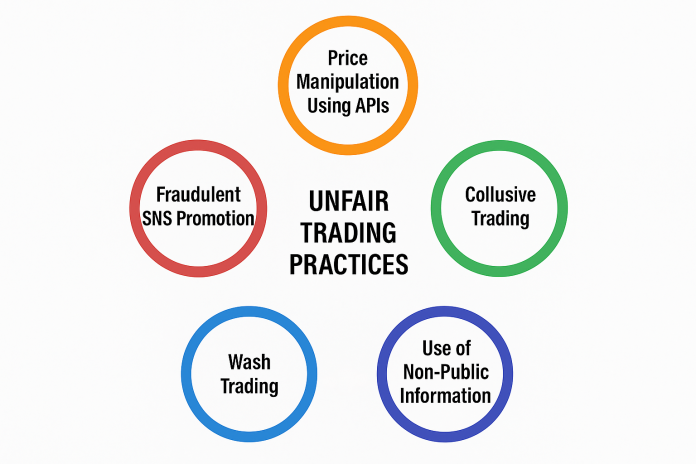
In May 2025, Korea’s Financial Supervisory Service (FSS) revealed that more than half of the crypto investors who received trading restrictions due to suspicious transactions were in their 20s and 30s. Many of these young investors were found to be unaware of the Virtual Asset User Protection Act, which went into effect in July 2023, continuing to trade based on outdated habits and market norms.
According to FSS data, 52.5% of users who were subject to irregular trading prevention measures at domestic exchanges between July and December last year were in their 20s and 30s. These preventive actions are triggered when abnormal price or volume fluctuations occur, leading to restrictions on order quantity or frequency. In serious cases, reports are submitted to financial authorities for investigation or legal action.
The FSS identified the following practices as key examples of unfair trading:
-
High-Bid API Manipulation: Using automated trading programs (APIs) to submit rapid high-price purchase orders, thereby inflating prices and selling off at a profit once other investors follow.
-
Wash Trading and Collusive Trading: Repeated buy/sell orders between the same entities to simulate high trading activity.
-
Use of Non-Public Information: Acting on insider knowledge about upcoming token listings before it becomes publicly known.
-
Pump via SNS: Buying a token early and then promoting it through social media to artificially inflate its price before selling.
All of these actions are classified as unfair trading under Korean law and may result in criminal penalties of at least one year in prison or fines up to 3 to 5 times the illicit gains. In some cases, additional administrative fines of up to double the gains may also apply.
The FSS emphasized that ignorance of the law is no excuse: “Even if users were unaware of the regulations or relied on previous market customs, they are still liable for violations.”
With APIs and automated trading now commonplace in crypto markets, even unintended repeated trades could fall under illegal wash trading. The FSS has urged users to carefully check any warning or restriction messages sent by exchanges via phone, SMS, or SNS, and to avoid repeated suspicious activity.
As younger generations increasingly dominate the crypto investment space, Korea’s regulators plan to intensify monitoring, enhance detection systems, and maintain strong enforcement to uphold market order.
Staying informed about legal frameworks is no longer optional—it’s essential for survival in the rapidly evolving digital asset landscape.






